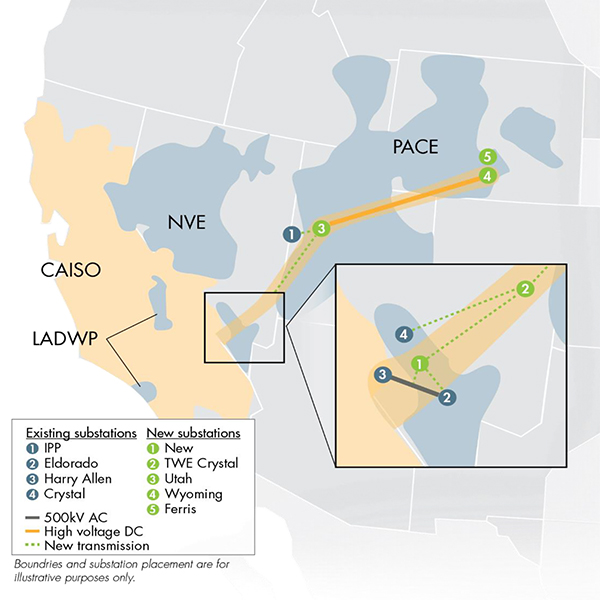FERC on Thursday denied a Tenaska complaint alleging that several grid operators adopted operating guides that resulted in unduly discriminatory curtailment of a wind farm it owns and operates.
The commission said in its order that Tenaska failed to show unjust, unreasonable and unduly discriminatory or preferential behavior under the Federal Power Act. Because it denied the complaint, FERC also rejected Tenaska’s requested relief for $9 million in lost revenue from the alleged curtailment (EL-22-59).
Tenaska filed its complaint in May, charging that MISO, SPP, Associated Electric Cooperative Inc. (AECI) and Tennessee Valley Authority had adopted operating guides that curtailed the Clear Creek Wind Project in a manner inconsistent with their tariffs.
The 242-MW facility sits within AECI’s Missouri footprint. The cooperative is the wind farm’s sole purchaser of power.
AECI is a generation and transmission cooperative and is classified as an “unregulated transmitting utility” without a tariff on file at FERC. TVA serves as the NERC-registered reliability coordinator for AECI’s balancing authority and MISO and SPP neighbor the cooperative’s transmission system.
FERC found MISO had not treated Tenaska in an unduly discriminatory manner, noting the company did not present any evidence that MISO has curtailed the wind farm. It also pointed out that the project is not located in MISO’s footprint; that Tenaska does not take transmission service from MISO for the project; and that MISO determined that no affected system network upgrades were required for the facility to operate.
The commission ruled SPP, AECI and TVA had not treated Tenaska unreasonably, although their collective actions did result in the Clear Creek project’s curtailment. However, according to the SPP-AECI joint operating agreement and SPP’s tariff, the wind farm is subject to limited operation until SPP can complete network upgrades on its system.
“Therefore, such curtailment is permissible to manage congestion and ensure the reliable operation of the transmission system,” the commissioners wrote.
FERC noted Tenaska’s facility is subject to limited operation because it entered commercial operation before SPP was able to complete the necessary network upgrades on its system. Because of that, the commission found Tenaska is “differently situated from other interconnection customers who are not subject to limited operation.”
The commission also disagreed with Tenaska’s argument that SPP should be required to file its operating guides with FERC. It said SPP’s operating guides are the mechanism by which the Tenaska facility’s limited operation was set and do not significantly affect rates, terms or conditions of service. FERC upheld SPP’s and AECI’s request to not publicly release the guides.
Commission Accepts Late Agreements
The commission accepted four of five late agreements filed by Cheyenne Light, Fuel and Power, a subsidiary of Black Hills, effective Dec. 14, 2021 (ER22-109).
The late agreements were discovered after a comprehensive review of the utility’s effective transmission and wholesale energy contracts to ensure any jurisdictional agreements were properly filed. They included a consolidated facilities agreement, an interconnection agreement, an Air Force agreement, an operating agreement and a large generator interconnection agreement (LGIA).
FERC only rejected an LGIA with Silver Sage Windpower, which dated to 2009. The LGIA contained seven non-conforming provisions, but the utility said it did not change the fact that a transmission provider under the commission’s large generator interconnection process is only paid for its actual costs in facilitating the interconnection. That meant the Silver Sage agreement only provided for collection of pass-through costs associated with the generation’s interconnection, Cheyenne Light said.
The commission said Cheyenne Light had not demonstrated that the deviations from the pro forma LGIA are necessary to address specific reliability concerns, novel legal issues or other unique factors associated with the agreements.




